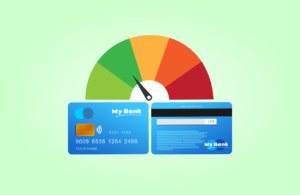Best Way to Improve Credit Score
Are you looking to unlock the secrets to improving your credit score and opening doors to better financial opportunities? Understanding how credit scores work and taking proactive steps can make a significant difference in your financial health. Let’s dive into the world of credit scores and discover actionable tips to boost your score!
Understanding Credit Scores
Credit scores are numerical representations of your creditworthiness, with higher scores indicating lower risk to lenders. They range from 300 to 850, and the higher your score, the better interest rates and loan terms you may qualify for.
Your credit score is calculated based on factors like payment history, amounts owed, length of credit history, new credit accounts, and types of credit used. It provides a snapshot of how responsibly you manage debt and financial obligations.
Monitoring your credit score regularly can help you track changes over time and identify areas for improvement. Understanding what influences your score empowers you to make informed decisions that positively impact your financial future.
By grasping the fundamentals of credit scoring systems, you can navigate the world of personal finance with confidence and work towards achieving a healthier financial standing.
Factors That Affect Credit Score
When it comes to your credit score, several factors come into play that can either positively or negatively impact it. One significant factor is your payment history. This includes whether you pay your bills on time and if you have any late payments or defaults.
Another crucial element is the amount of debt you owe. The total amount of debt across all your accounts, as well as the utilization rate on revolving credit accounts like credit cards, can influence your credit score.
The length of your credit history also matters. A longer credit history demonstrates how responsibly you’ve managed credit over time. Newer accounts may indicate higher risk to lenders.
Additionally, the types of credit accounts you have can affect your score. Having a mix of installment loans and revolving credit (like a mortgage and a car loan) shows that you can handle different types of debt responsibly.
The number of recent inquiries on your credit report can impact your score too. Multiple hard inquiries within a short period could be seen as risky behavior by potential lenders.
Steps to Improve Your Credit Score
Improving your credit score is a crucial step towards financial stability and future opportunities. To boost your creditworthiness, start by obtaining a copy of your credit report from the major bureaus. Review it carefully for any errors or inaccuracies that could be dragging down your score.
Next, focus on making timely payments on all your bills and debts. Payment history plays a significant role in determining your credit score, so ensuring prompt payments can have a positive impact over time. If you’re struggling to keep up with multiple due dates, consider setting up automatic payments or reminders to stay on track.
Additionally, work on reducing outstanding balances on your credit cards and loans. High amounts of debt relative to your available credit limit can negatively affect your score. Aim to keep utilization below 30% to demonstrate responsible borrowing habits.
Avoid opening new lines of credit unnecessarily as each application can result in a hard inquiry which may temporarily lower your score. Instead, focus on managing existing accounts wisely and gradually building a positive payment history.
Importance of Paying Bills on Time
Paying bills on time is crucial for maintaining a healthy credit score. When you consistently pay your bills by their due dates, it shows lenders that you are reliable and responsible with your finances. This positive payment history can have a significant impact on your credit score.
Late payments can lower your credit score and stay on your credit report for years. They signal to creditors that you may be a risky borrower, which could result in higher interest rates or even denial of future credit applications. 
By staying organized and setting up reminders for bill due dates, you can ensure that you never miss a payment. Setting up automatic payments or utilizing online banking tools can also help simplify the process and avoid any late fees.
Remember, paying bills on time is not just about avoiding penalties – it’s about building a strong financial foundation and demonstrating to lenders that you are trustworthy when it comes to managing debt.
Reducing Credit Card Balances
Credit card balances play a significant role in determining your credit score. High balances relative to your credit limit can negatively impact your score. To improve your credit standing, focus on reducing these balances.
Start by assessing the outstanding balances on each of your credit cards. Create a plan to pay off high-interest debt first while making minimum payments on other cards. Consider consolidating debts or transferring balances to lower interest rate cards.
Set a budget and allocate extra funds towards paying down your credit card balances each month. Cut back on unnecessary expenses to free up more money for debt repayment. It may require discipline and sacrifice, but reducing your credit card balances will benefit you in the long run.
Avoid using your credit cards excessively while working towards paying off existing balances. By keeping spending in check and diligently chipping away at what you owe, you can gradually decrease your overall debt load and improve your credit score over time.
Disputing Errors on Your Credit Report
Have you ever checked your credit report and noticed errors that could be impacting your credit score? It’s crucial to review your credit report regularly to ensure its accuracy. If you spot any discrepancies, don’t panic! You have the right to dispute any inaccuracies on your credit report.
The first step is to gather evidence supporting your claim. This could include bank statements, payment receipts, or any relevant documentation that proves the error. Once you have all your evidence in order, it’s time to submit a dispute with the credit bureau reporting the error.
When disputing an error, be clear and concise in explaining why you believe it is inaccurate. Provide as much detail as possible and attach copies of any supporting documents. The credit bureau will investigate your claim and provide a response within 30 days.
Remember, correcting errors on your credit report can potentially boost your credit score over time. So don’t hesitate to take action if you discover any discrepancies!
Improving your credit score is a crucial step towards financial stability and achieving your goals. By understanding how credit scores work, being aware of the factors that influence them, and taking proactive steps to enhance your score, you can set yourself up for success.
Remember, paying bills on time is essential for maintaining a positive credit history. Additionally, reducing credit card balances can lower your credit utilization ratio and demonstrate responsible financial behavior. Don’t forget to regularly review your credit report for any errors that could be dragging down your score.
By implementing these strategies and staying committed to improving your financial health, you can take control of your credit score and pave the way for a brighter financial future. Start today and watch as your efforts pay off in the form of a higher credit score and better opportunities ahead!



